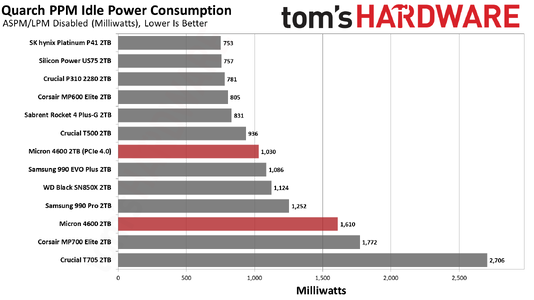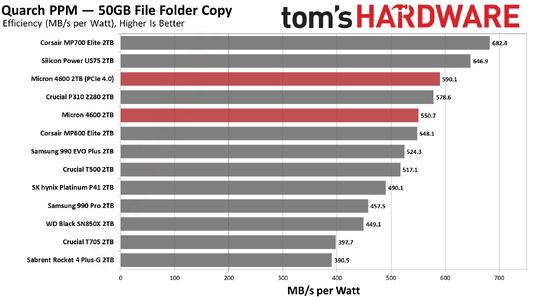Samsung introduced its 9100 Pro, the first "true" PCIe 5.0 SSD from the company, with speeds of up to 14.8GB/s, potentially making it the new worlds-fastest consumer SSD and outpacing the Crucial T705. Just as importantly, it can hit that speed while only using 9W (compared to 12W on the Phison E26 drives).
Samsung's 9100 Pro SSD boasts 14,8 GB/s read speeds, making it the world's fastest consumer drive : Read more
Samsung's 9100 Pro SSD boasts 14,8 GB/s read speeds, making it the world's fastest consumer drive : Read more







